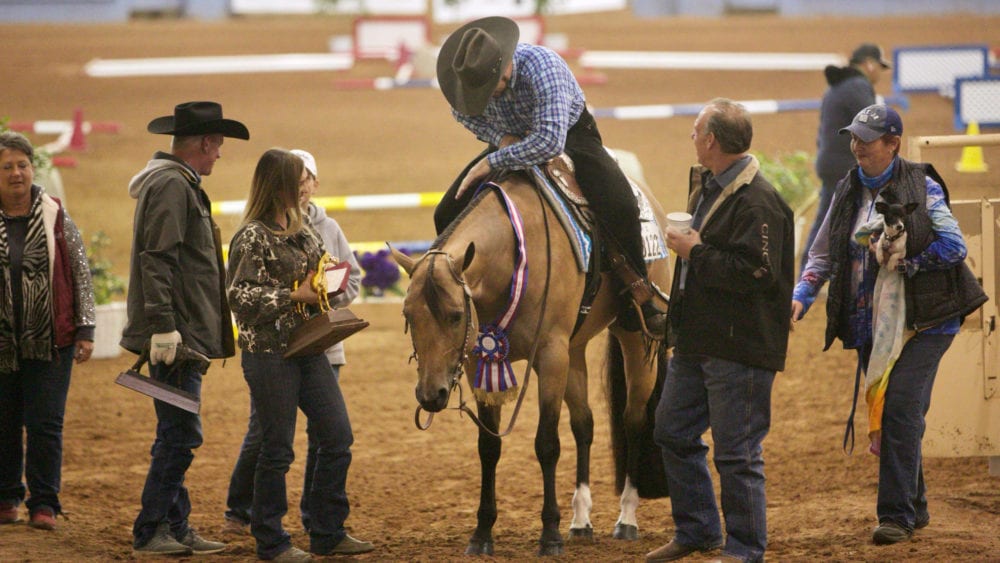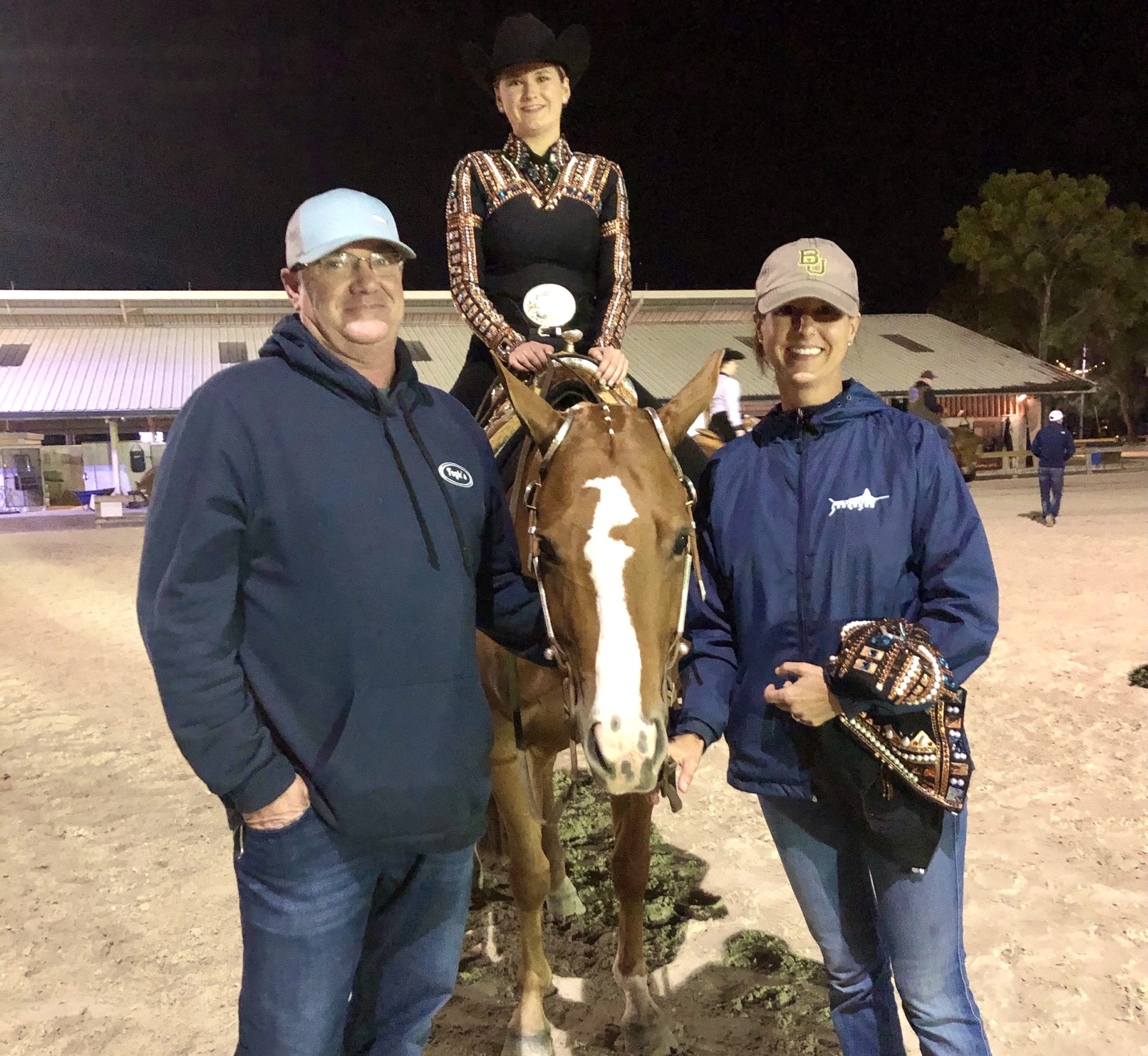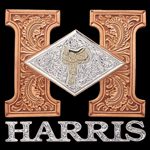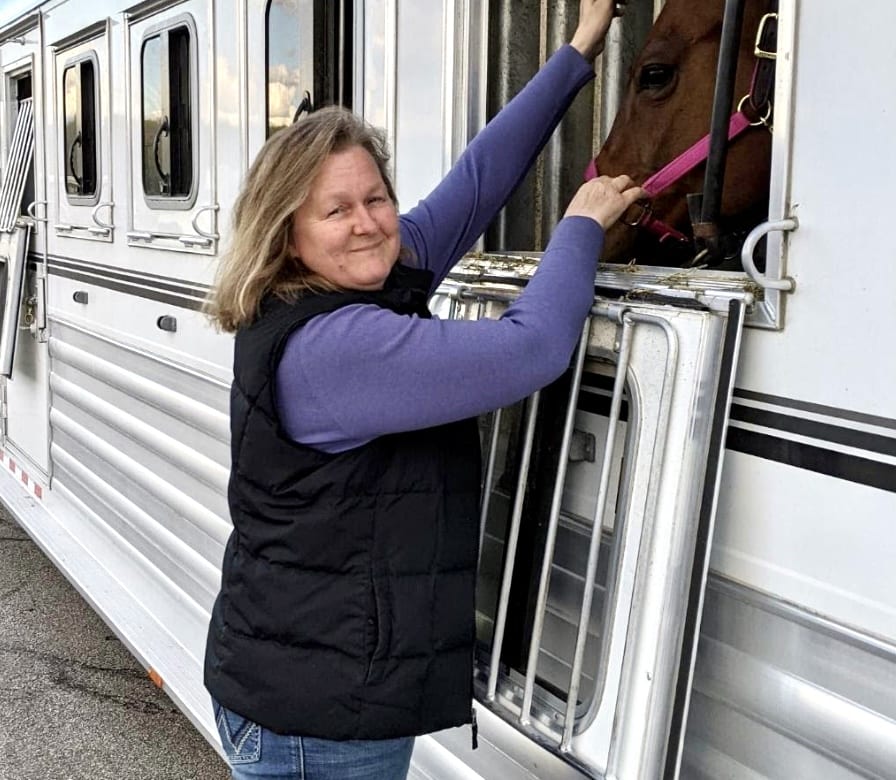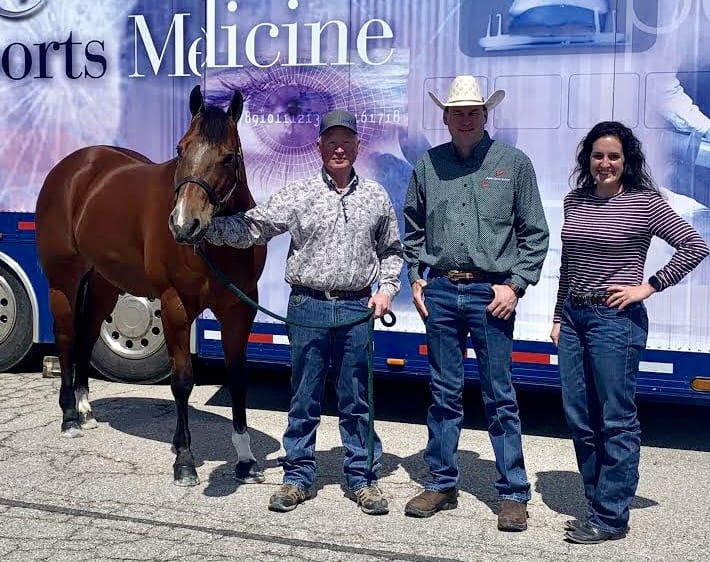When an exhibitor walks up to a cone to compete, there is more than meets the eye. To get a competitor to that moment, there is a vast team of supporters ready to help.
Trainers are at the forefront of many exhibitors’ villages, but we wanted to focus on the often-overlooked team members to highlight their hard work, commitment, and passion for the industry.
We spoke with Ella Peters, an AQHA competitor who now rides for Baylor University. “I wouldn’t be where I am today without my parents’ help and support. They are always my biggest cheerleaders and have been my biggest support system throughout my show career.”
Her mother, Gretchen Peters, has played an essential role in Ella’s show career. Although Gretchen’s role as a horse show mom went from carrying the weight of the weekend, to now observing, videoing, and encouraging Ella, she still plays a big part.
“I keep my daughter fed, rested, and with a good attitude, because I feel like with that, anything’s possible.” She also helps Ella keep perspective, “As a horse show mom, I want to see Ella be successful, but I also want her to be happy and have fun.”
 Youth competitor Bella D’Onofrio discusses how her mother, Jennifer D’Onofrio is a key component to her success in the show arena. “My mom has impacted my horse career in many ways. If it wasn’t for her, I don’t think I would be where I am today,” Bella shared with us. “I fell in love with horses when she put me on her show horse when I was tiny. She has impacted everything, from my trainer to my clothing and financial support. We have also gone through some very tough horse losses, but we are getting through it with each other’s love and support.”
Youth competitor Bella D’Onofrio discusses how her mother, Jennifer D’Onofrio is a key component to her success in the show arena. “My mom has impacted my horse career in many ways. If it wasn’t for her, I don’t think I would be where I am today,” Bella shared with us. “I fell in love with horses when she put me on her show horse when I was tiny. She has impacted everything, from my trainer to my clothing and financial support. We have also gone through some very tough horse losses, but we are getting through it with each other’s love and support.”
GoHorseShow talked to Sandy Turmel, a hauler from Connecticut. Sandy grew up with horses, eventually working with a quarter horse trainer and competing in local and regional quarter horse shows.
Turmel would transport horses as a side job, but her business has snowballed into a full-time career in the past ten years. Sandy says she is on the road about 300 days a year. “Hauling horses is more than just getting in the truck and driving,” she explains.
Sandy does pre-trip checks to ensure the safe arrival of the precious cargo, keeps an eye on the horses, makes sure the truck and trailer are maintained, administers any medications, takes temperatures, and makes sure that the horses are eating and drinking properly.
Turmel also gives trainers and exhibitors the ability to rest and spend more time with their family, rather than spending time hauling down the road.
“Whether I am driving my rig or somebody else’s, it does not matter to me if the horses are somebody’s backyard pets, or somebody’s $100,000 show horse, they always get treated as if they were my own,” Sandy says.
When at a horse show, the last thing you want is a lame horse as you walk him out of the stall. For many exhibitors, this sight is heart-breaking, but with proper on-site treatment and diagnosis, exhibitors and their horses can get back to doing what they love.
GoHorseShow interviewed Dr. Josh Donnell, co-owner of Equine Sports Medicine. This practice has a home clinic in Pilot Point, Texas, and a rehabilitation clinic in Whitesboro, TX. They are also well known for their mobile clinic.
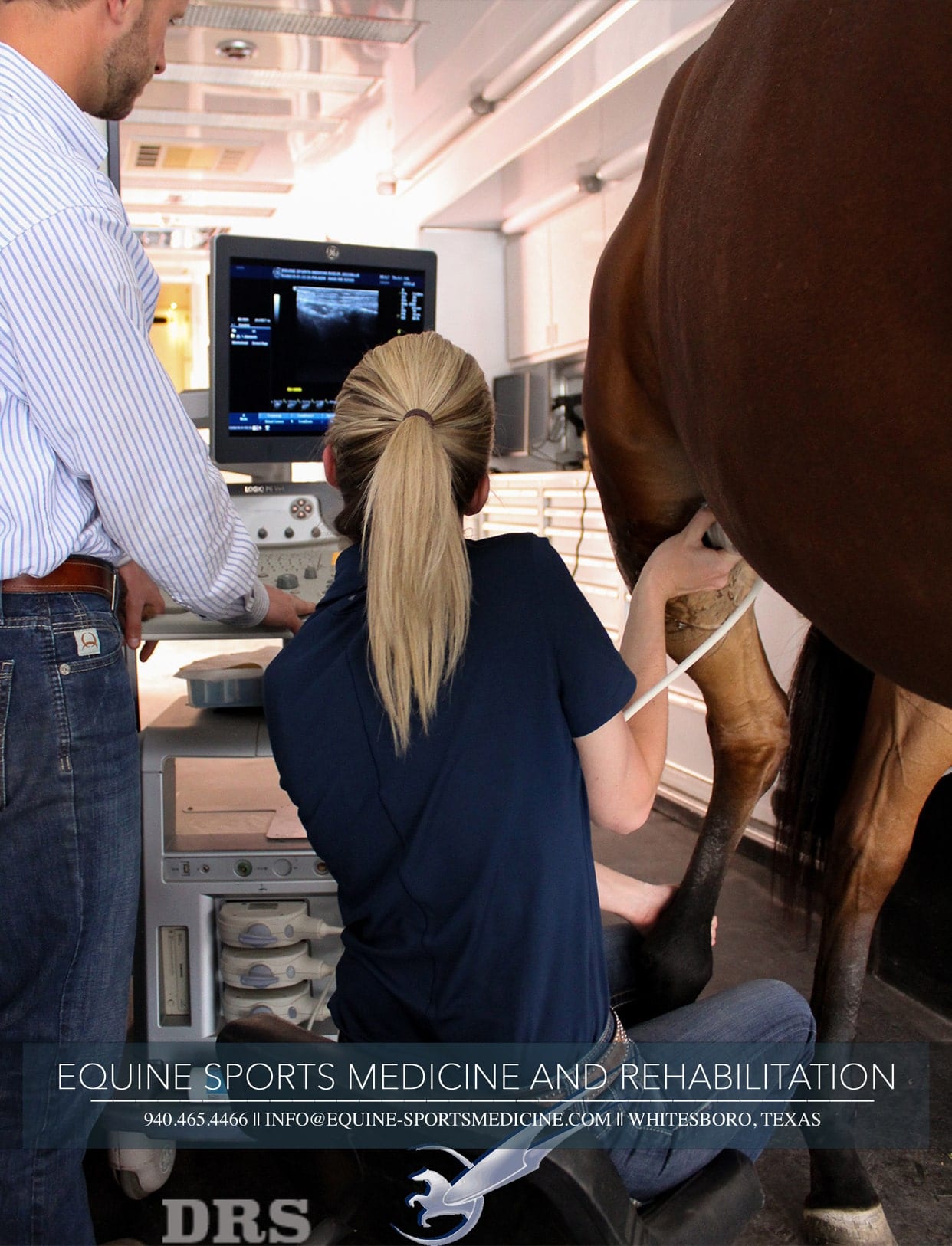 The mobile clinic is on the road for about 200 to 250 days a year, traveling to shows all over the country, such as the American Quarter Horse Congress. When at shows, the Equine Sports Medicine team is on call 24/7, ready to give pre-purchase exams, manage soft tissue injuries, lameness, and colic issues that may arise.
The mobile clinic is on the road for about 200 to 250 days a year, traveling to shows all over the country, such as the American Quarter Horse Congress. When at shows, the Equine Sports Medicine team is on call 24/7, ready to give pre-purchase exams, manage soft tissue injuries, lameness, and colic issues that may arise.
The mobile clinic also offers unique advantages. They can keep all the supplies needed in one truck and trailer unit. Being on the grounds with the competitors offers a lot of benefits. “You can see why the competitor’s hearts are in it so big and why they want their horses to be perfect,” Dr. Donnell says. “We often work with repeat customers. It’s like a family. We all move up and go to the next place.”
Show Staff
Another critical aspect of the horse show team is the show staff. They are responsible for ensuring that classes run on time, the grounds are kept clean, and that everything is maintained in tip-top condition.
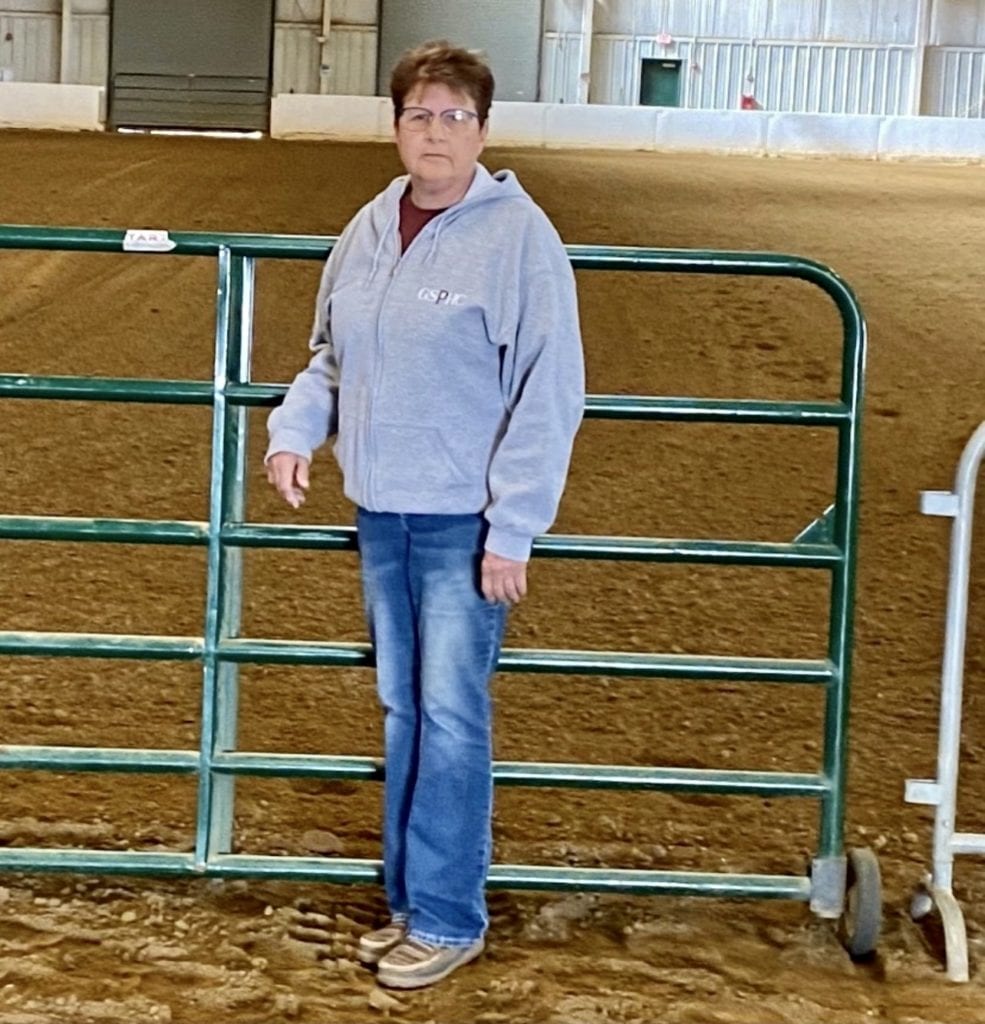 GoHorseShow spoke with Flossie Ale, the administrator at the Dream Park in Gloucester County, New Jersey. The Dream Park holds shows 51 weeks out of the year, accommodating shows for various disciplines.
GoHorseShow spoke with Flossie Ale, the administrator at the Dream Park in Gloucester County, New Jersey. The Dream Park holds shows 51 weeks out of the year, accommodating shows for various disciplines.
Flossie has been managing AQHA shows for the past 12 years, but she grew up around horses her entire life. She passed down her passion to her children. Her son, Brian Ale, is a well-known quarter horse trainer.
“I love my job. To me, it’s not like a job,” Flossie says. “I treat the Dream Park like my name is on the deed.”
It does not take long to realize how true this rings. With only a seven person crew, preparation for shows is quite the challenge, but the team operates like a well-oiled machine. Mike McCurty, the maintenance supervisor, runs a tight ship to ensure that the grounds are pristine. The stalls and show barn aisles must get disinfected between every show, the grass must be mowed and hedges trimmed, footing must be dragged daily, and bedding must be set up in front of the stalls at least two days before the show.
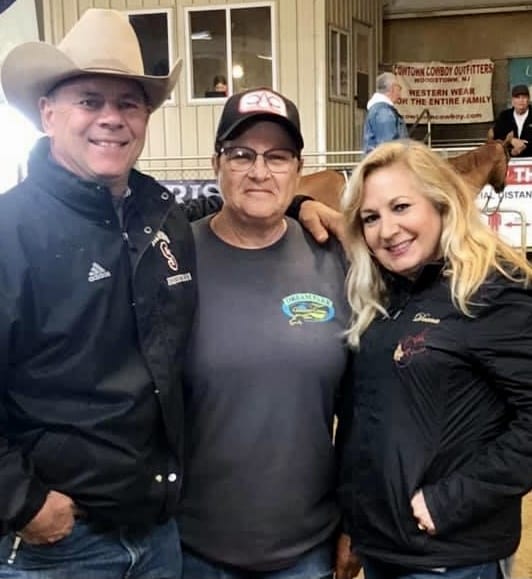 For a facility of 278 stalls, two indoor arenas, and multiple outdoor areas, this is quite the feat.
For a facility of 278 stalls, two indoor arenas, and multiple outdoor areas, this is quite the feat.
“It takes a full year to get ready for a show on the management side of show preparation,” Flossie says. “Judges, scribes, gate people, announcers, and secretaries must be hired. Hotels need to be contacted, and accommodations need to be organized for the judges.”
***
The horse show team is truly a vast village of passionate individuals dedicated to their jobs and skillsets. It is with this village that exhibitors and horse lovers alike can reach their goals.
So, to all of the village members that may not typically get the recognition they deserve – we thank you!


